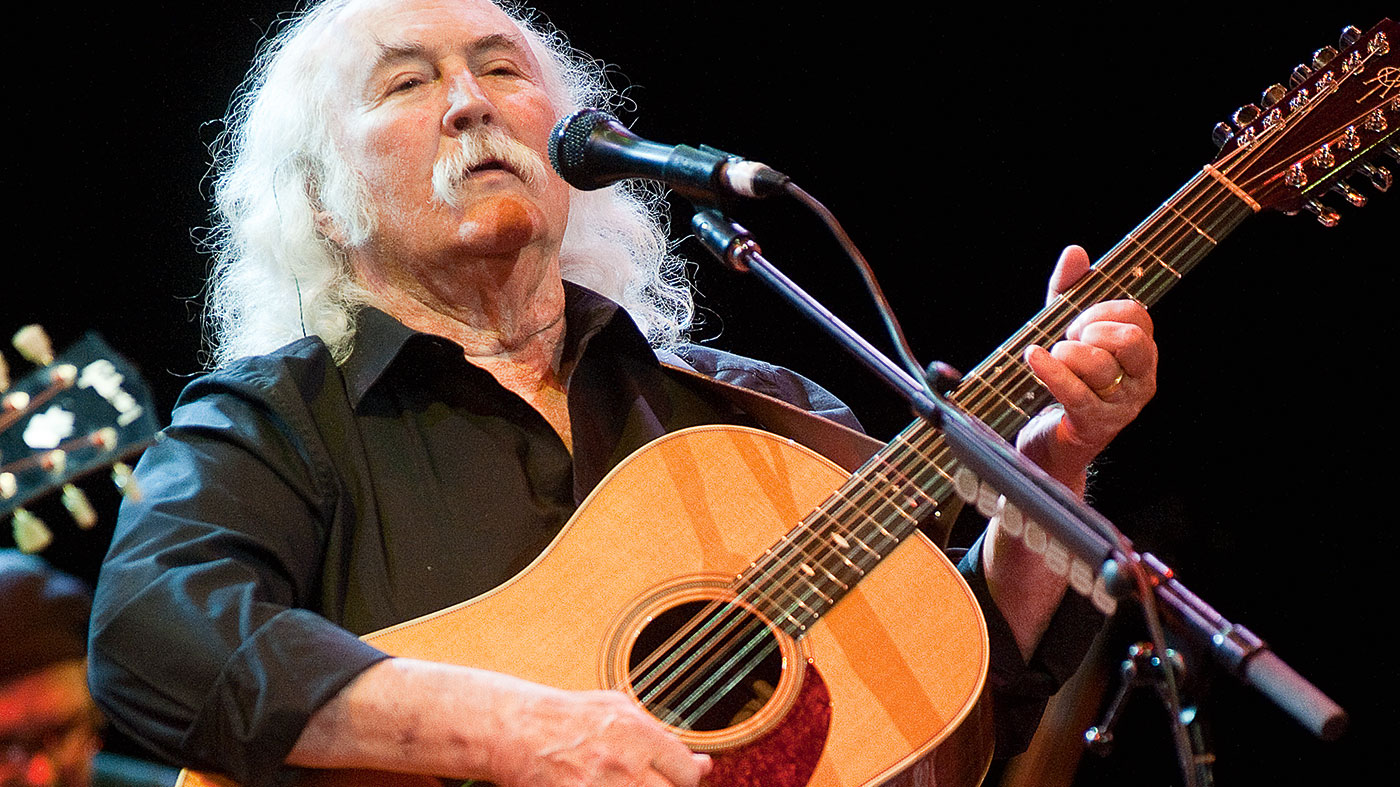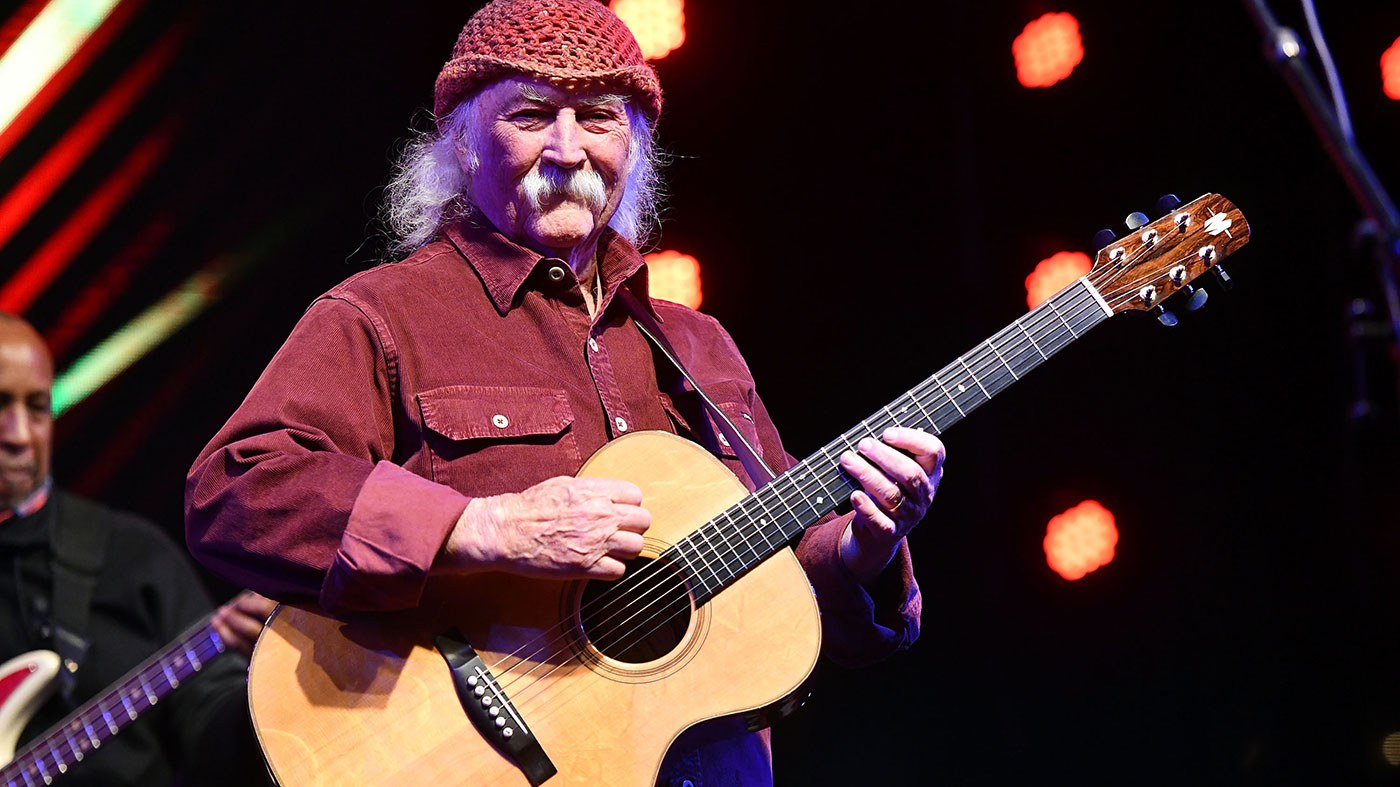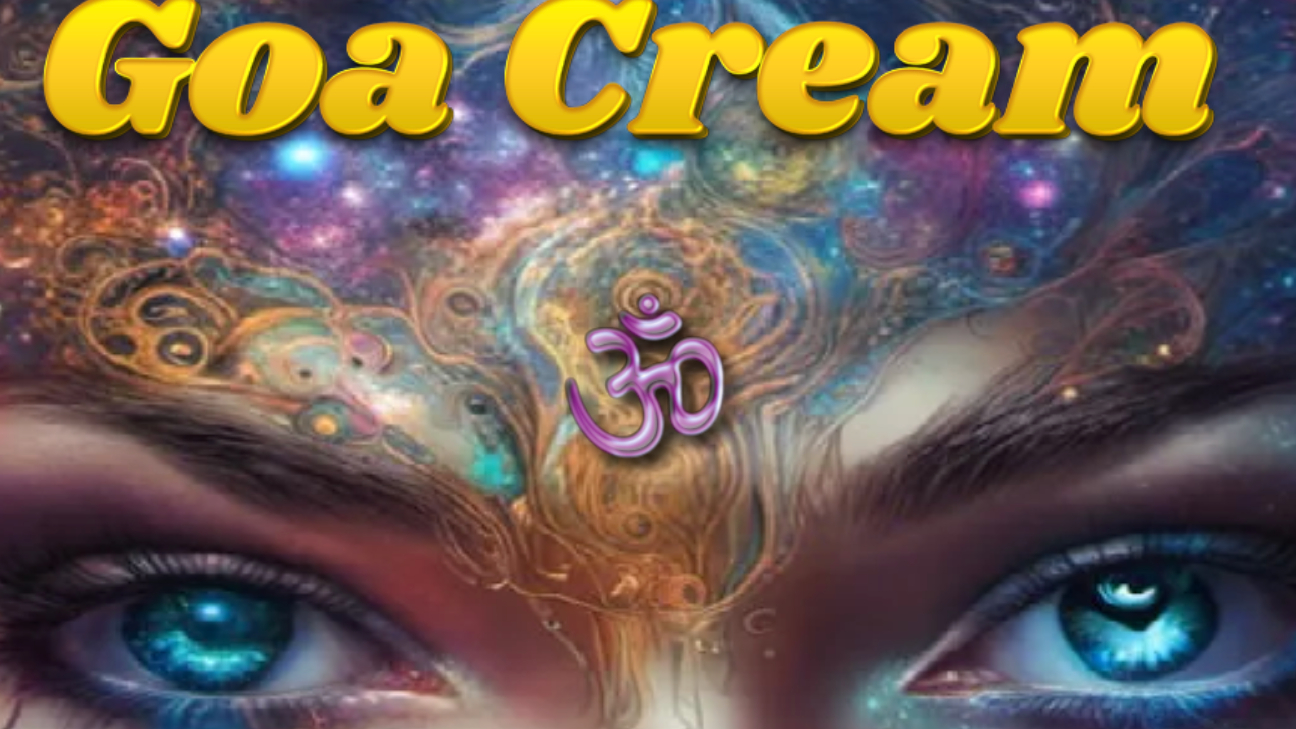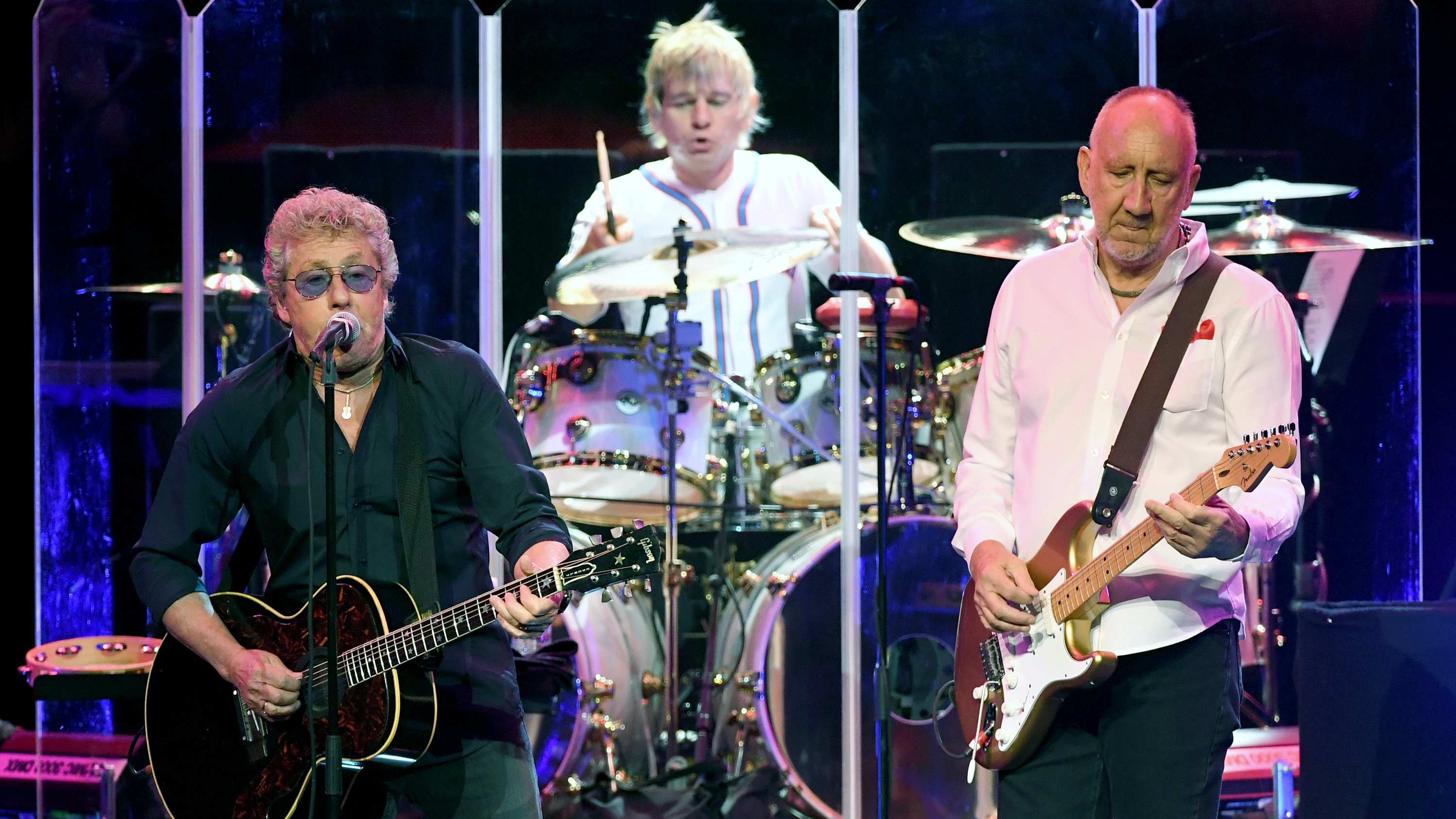David Crosby: “Dying is part of life. I’m at the end of my life, so I have to look at it”
The folk-rock icon finds redemption in reflection in his creative, collaborative new record, Here If You Listen

David Crosby is living evidence that there is no justice in the world. Despite all his past near-death scrapes, incarceration and general fulfilment of the rock ’n’ roll fantasy, he has a rich family life, money in the bank and a career that has recently enjoyed a rejuvenation. It’s the sort of forward momentum that his 60s peers must regard enviously.
This is like one long mutiny! I’m definitely not in charge
At 77, his voice sounds remarkable, not just ‘for his age’ - but by any measure. “I know! It doesn’t make any sense at all, man,” he says, when we comment on the unjustifiably good shape of his vocal pipes. “I don’t know why it is like it is, but I figure this: if it’s going to be this good - and it’s really good, right now. I’m singing really well - I should just work the hell out of it and run it until the wheels come off. So that’s what I’m doing!”
Here If You Listen is the latest album born from a fruitful partnership with Snarky Puppy man Michael League and the Lighthouse Band (completed by Becca Stevens and Michelle Willis). It’s a superbly-crafted, gentle yet unpredictable evolution of Croz’s harmony-led folk-rock. This time it’s a true four-part collaborative writing effort and, notably, far removed from the typical band of boot-lickers with which so many iconic songwriters surround themselves.
“Yeah, that doesn’t work at all,” emphasises Crosby. “But these guys aren’t like that. This is like one long mutiny! I’m definitely not in charge. And I don’t want to be. In the Lighthouse Band, Michael is the best leader and he’s good at it. I do a bunch of writing and I’m the lead singer. We have so much fun.”
Certainly, Here If You Listen sounds fun, delighting in juxtaposing Crosby’s gentle folk rock and the contemporary influences of his collaborators. It’s not often you hear one of the Laurel Canyon set accommodating an electric seven-string (as ably supplied by Stevens on Vagrants Of Venice), or going convincingly funk (Janet), but League and co’s avant-garde musicianship blends well with Crosby’s knack for a melodic left turn.
“I’m a reasonably confident picker,” Crosby tells us. “Mostly, my strength is in using the acoustic guitar in tunings to write unusual stuff. Once you realise you can tune the bottom string down to D that’s the beginning of the slippery slope!
“I got into it because a friend of mine from the Midwest [Jack Wilse], showed me the Guinevere tuning [EBDGAD - AKA ‘Croz’ tuning - Ed]. I wrote Guinevere and Deja Vu in that tuning and really loved it. Then, Joni Mitchell was my old lady for a year - that will change your head, believe me! It was almost too much to handle. Then Michael Hedges became my friend and he took tuning the acoustic guitar much further than anybody ever has. He taught me a tremendous amount of stuff.”
Get the MusicRadar Newsletter
Want all the hottest music and gear news, reviews, deals, features and more, direct to your inbox? Sign up here.
What a ride
On Here If You Listen, Crosby is still delighting in learning and pushing himself, clearly feeling well-supported by the Lighthouse Band. Not only comfortable in including their clever reworking of 60s holy cow Woodstock, but also Your Own Ride - a touchingly direct song addressing his impending mortality, first written 10 years ago for his son, Django.
Most people… don’t want to think about the fact that dying is part of life. I’m at the end of my life, so I have to look at it
“Most people… don’t want to think about the fact that dying is part of life,” acknowledges Crosby. “I…” he pauses, briefly. “I’m at the end of my life, so I have to look at it. At least to the degree where I say, ‘Well, I have a limited amount of time. How am I going to spend it?’ What you’ve got to do is figure out what really matters to you and do that - and only that - and do that to the best of your ability, as much as you can, in the time that you have.”
It’s admirable to find Crosby - for all his famed jocularity - willing to look death in the eye. Far from morbid fascination, it’s an indication of that insatiable thirst for life, with all its complications, that has continually led him to experiences, good and bad.
“I’d say look for real value in things,” says Croz, offering up some advice. “There are things that look pretty good on the surface but they really have no substantive value. Look for the value in family. Look for the value in music. In real, actual music. Don’t look for value in fame, because there isn’t any. Don’t look for money, stardom, glory, all of that bullshit. Look for love in your family and love in your music.”
McAlister house

David Crosby knows his acoustics. He snapped up three of the first post-war Martins in the 60s, though he says, “Truthfully, I did not know what they would be worth…” However, it is luthier Roy McAlister who is responsible for his current favourites.
“I’d always been a Martin guy and I still am,” says Crosby. “But this guy brought a guitar to my house that he had made. It was one of the best guitars I’ve ever played. I now have five of his guitars and I think he’s probably one of the best makers in the world. I used to be just a dreadnought guy, but he has made me a couple of [shapes]: a 000-sized one and a 12-string that’s more like a J-200. He’s a really careful maker with a gift for picking wood.”
Matt is a freelance journalist who has spent the last decade interviewing musicians for the likes of Total Guitar, Guitarist, Guitar World, MusicRadar, NME.com, DJ Mag and Electronic Sound. In 2020, he launched CreativeMoney.co.uk, which aims to share the ideas that make creative lifestyles more sustainable. He plays guitar, but should not be allowed near your delay pedals.
“Beyond its beauty, the cocobolo contributes to the guitar’s overall projection and sustain”: Cort’s stunning new Gold Series acoustic is a love letter to an exotic tone wood
“Your full-scale companion. Anytime. Anywhere… the perfect companion to your full-size Martin”: Meet the Junior Series, the new small-bodied, travel-friendly acoustic range from Martin












